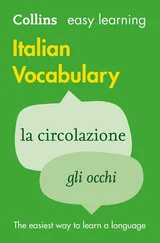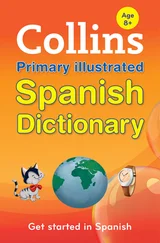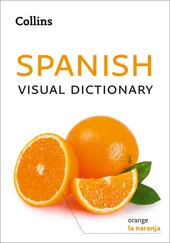| Si puòparcheggiare qui? |
Is it okay topark here? |
| Si puòfumare in c a mera? |
Is it okay tosmoke in the room? |
| Si puòmangiare fuori? |
Is it possible toeat outside? |
| Le dispiace separch e ggio la m a cchina qui fuori per un minuto? |
Do You mind ifI park my car outside for a moment? |
| Le dispiace sepago con la carta di cr e dito? |
Do You mind ifI pay by credit card? |
| Le dispiace seprendiamo la c a mera al piano di sopra? |
Do You mind ifwe take the room on the next floor? |
If you want to ask someone if you may do something, you can also use È permesso..? (Am I allowed to…?) followed by the infinitive.
| È permessoric e vere o spiti? |
Am I allowed tohave guests? |
| È permessousare la gr i glia? |
Are we allowed touse the barbecue? |
| È permessousare il tel e fono? |
May weuse the phone? |
| Ci è permessoportare il cane? |
Are we allowed tobring our dog? |
SAYING WHAT YOU LIKE, DISLIKE, PREFER
When talking about what you like, use mi piace (I like) with singular nouns and mi piaccionowith plural nouns. To say what you don’t like, use non mi piaceor non mi piacciono. These come from the verb piacere.
| Mi piacecenare all’aperto. |
I likehaving dinner outside. |
| Mi piaccionogli alberghi p i ccoli. |
I likesmall hotels. |
| Mi piaccionoi campeggi in montagna. |
I likecampsites in the mountains. |
| Mi piace tantissimoquesta pensione. |
I lovethis guest house. |
| Non mi piacequesto albergo. |
I don’t likethis hotel. |
| Non mi piaceviaggiare in traghetto. |
I don’t likegoing on the ferry. |
| Non ci piacepianificare tutto in ant i cipo. |
We don’t liketo plan everything in advance. |
| Odioquesto arredamento. |
I hatethis decor. |
| Odiole grandi catene alberghiere. |
I hatebig chain hotels. |
| Detestonon avere il bagno. |
I hatenot having a bathroom. |
If you want to say what you prefer, use preferisco( I prefer ) or preferirei( I’d prefer ). These come from the verb preferire. For more information on -ireverbs like preferire, see here.
| Preferiscoquesto hotel. |
I preferthis hotel. |
| Preferiscostare presso una fam i glia. |
I preferto stay with a family. |
| Preferiamogli ostelli aicampeggi. |
We preferyouth hostels tocamp sites. |
| Preferireistare in centro. |
I’d ratherbe in the town centre. |
| Preferiremmoabitare in campagna. |
We’d ratherlive in the country. |
| Preferirei nondover far file. |
I’d rather nothave to queue. |
| Preferireidiv i dere un appartamento piuttosto cheabitare da sola. |
I’d rathershare a flat thanlive on my own. |
You may well be asked what you think of your accommodation. Whether it’s perfect or not up to scratch, to say what you think you can use penso che( I think ) or trovo che( I find ) followed by the subjunctive. These come from the verbs pensare( to think ) and trovare( to find ). For more information on -areverbs, see here, and for the use of the subjunctive, see here.
| Penso chela c a mera sia un po’ p i ccola. |
I thinkthe bedroom’s a bit small. |
| Penso chela casa sia molto accogliente. |
I thinkthe house is very welcoming. |
| Trovo checi sia troppo rumore la notte. |
I findthere’s too much noise at night. |
| Ho trovatoil serv i zio eccellente. |
I foundthe service excellent. |
| A mio avviso, costa troppo per quello che è. |
In my opinion, it costs too much for what it is. |
| Secondo me, fa pr o prio per noi. |
In my opinion, it’s just what we want. |
| Secondo me, la stanza è troppo p i ccola. |
In my opinion, the room is too small. |
| A mio avviso, è completamente inaccett a bile. |
In my view, it’s totally unacceptable. |
If you would like to suggest that you do something, use posso( I can ) followed by the infinitive and se vuole( if You like ) – or se vuoifor a person you know well – at the end. possocomes from the verb potere( to be able ). For more information on potere, see here.
| Possodarle conferma delle date domani, se vuole. |
I canconfirm the dates tomorrow, if You like. |
| Possomandarle un acconto, se vuole. |
I cansend You a deposit, if You like. |
| Possiamocercare un altro albergo, se vuoi. |
We canlook for another hotel, if you like. |
If you wish to ask what someone would like you to do, you can use Vuole che…? (Would You like me to…?) or, more informally, Vuoi che…?, followed by a verb in the subjunctive, which you can find out more about on here.
Читать дальше












